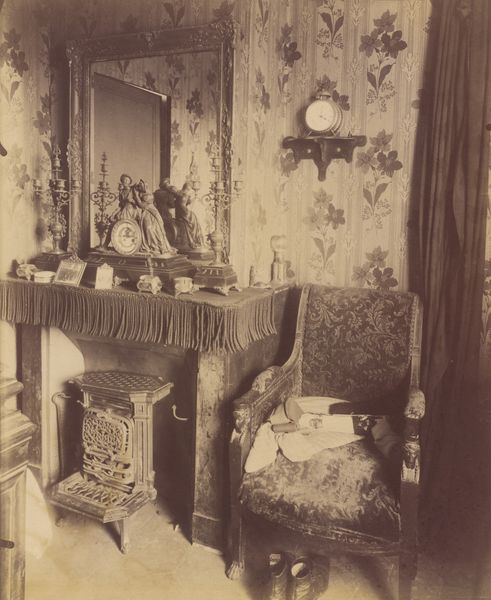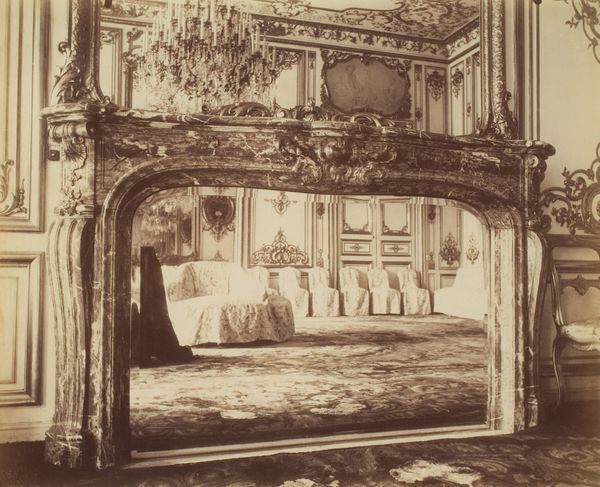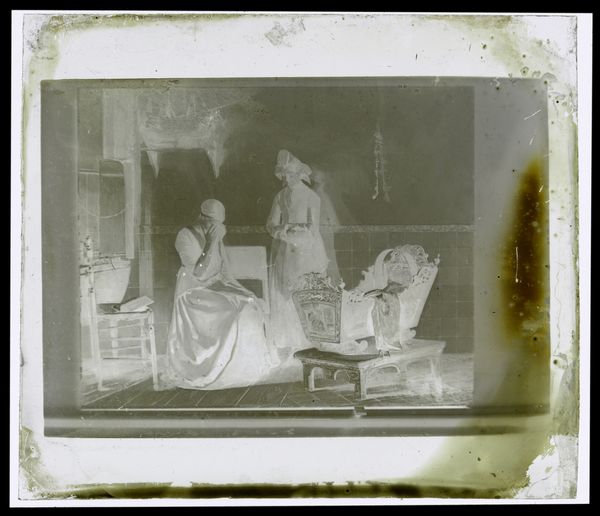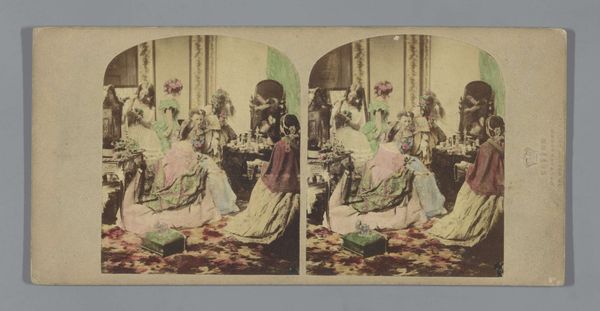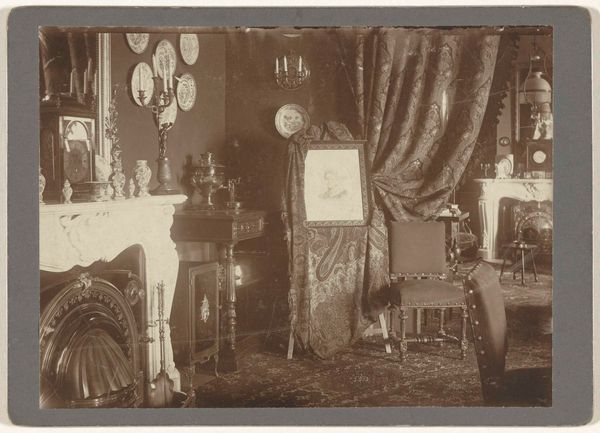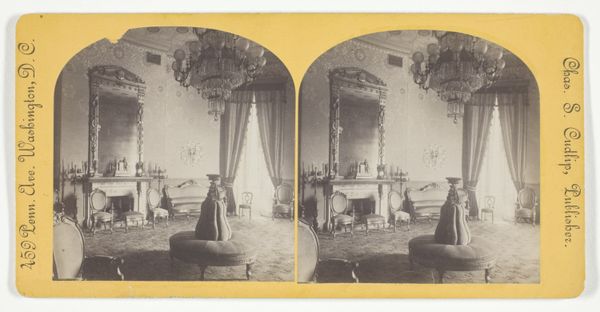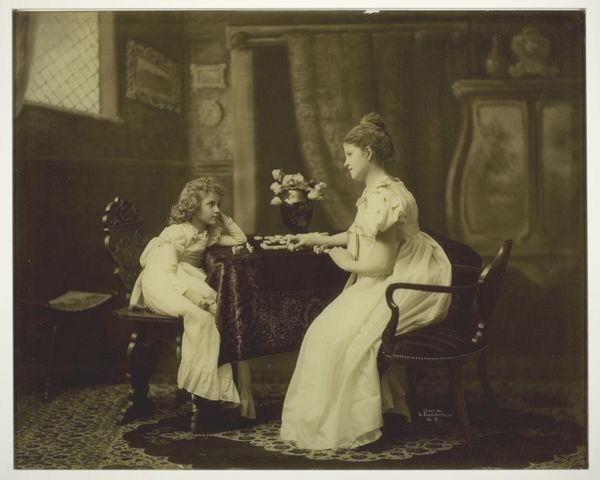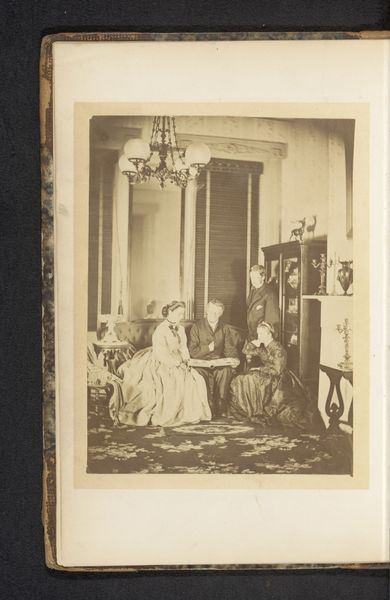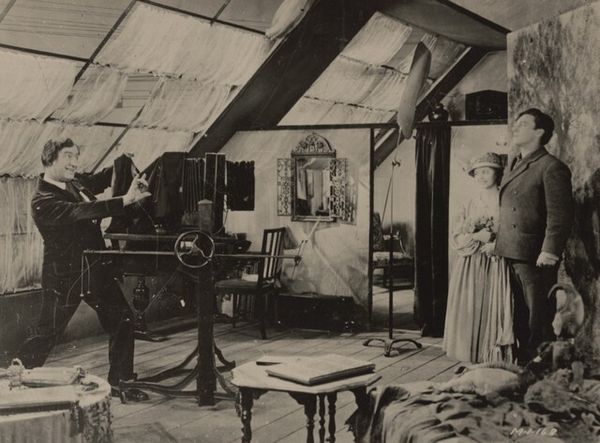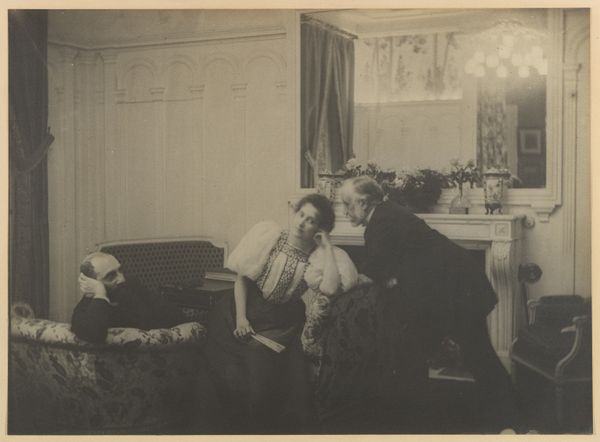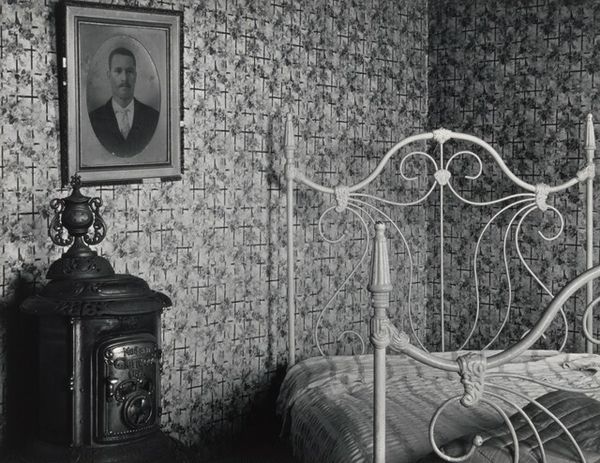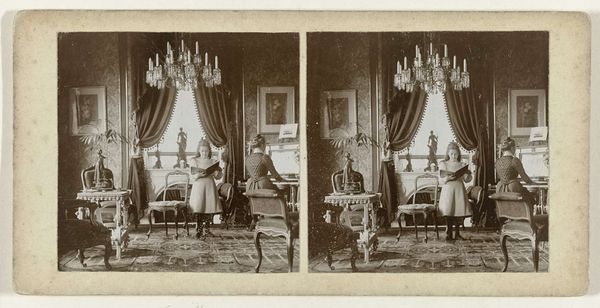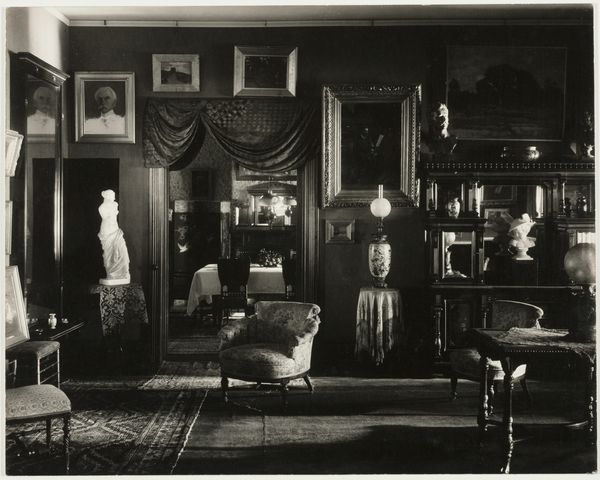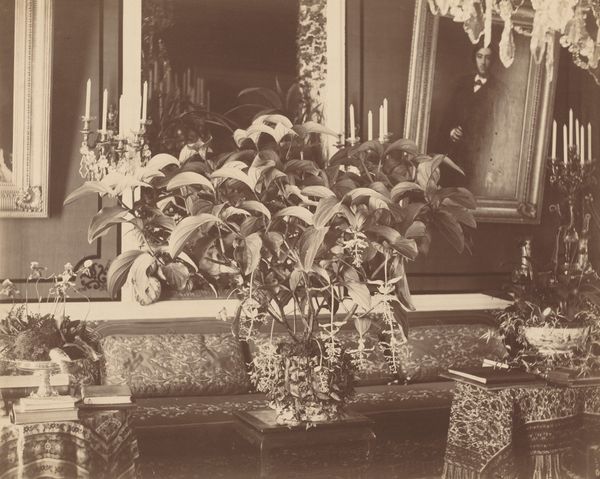
photography, albumen-print
#
portrait
#
16_19th-century
#
archive photography
#
historic architecture
#
traditional architecture
#
photography
#
historical photography
#
19th century
#
genre-painting
#
albumen-print
#
historical building
Dimensions: image: 13.02 x 17.3 cm (5 1/8 x 6 13/16 in.) mount: 27.15 x 36.99 cm (10 11/16 x 14 9/16 in.)
Copyright: National Gallery of Art: CC0 1.0
Curator: This albumen print, titled "Interior of Room," was created around 1862. The artist is noted as Viscountess Jocelyn. What's your immediate reaction to this image? Editor: Well, visually, the overwhelming impression is one of ornate detail and patterned surfaces. My eyes dart all over. It feels simultaneously inviting and somewhat oppressive, maybe claustrophobic? Curator: I see what you mean. Let’s consider that the production of this print involved meticulously coating paper with a light-sensitive albumen emulsion, likely sourced from egg whites. It was a labor-intensive process. Editor: The tonal range is surprisingly subtle for a photograph of this era, which enhances its descriptive effect. The way the light falls, picking out the textures of the wallpaper, the carpets, the dresses—it is as if they were deliberately orchestrated in a painting. Curator: Precisely. The clothing speaks volumes about social expectations and gender roles within the home, doesn’t it? The dark dress isolates her. And that figure lounging – reading, perhaps? - how might their labor, the conditions of their domestic work or leisure, contrast with Jocelyn’s privileged status? Editor: Formally, note the repetition of curves: the arched mirror, the rounded chair backs, echoed even in the floral patterns of the wallpaper and the rug. There is such careful crafting of a sense of harmony – or, if you are so inclined – entrapment, for the two female figures present in the setting. Curator: Good point. We should acknowledge that domestic textiles and the ready-made photograph allowed families to assert, stage, and consume their values. It begs a question, isn’t it? This space isn't just a setting. Editor: Indeed, the photographic space allows the artist to reveal how identity and representation of wealth are constructed, or in many cases literally “staged” and consumed by the viewers. Thanks for walking us through these intricacies! Curator: Thank you! Reflecting on both process and presentation has really helped unlock some interesting nuances here, don't you agree?
Comments
No comments
Be the first to comment and join the conversation on the ultimate creative platform.
